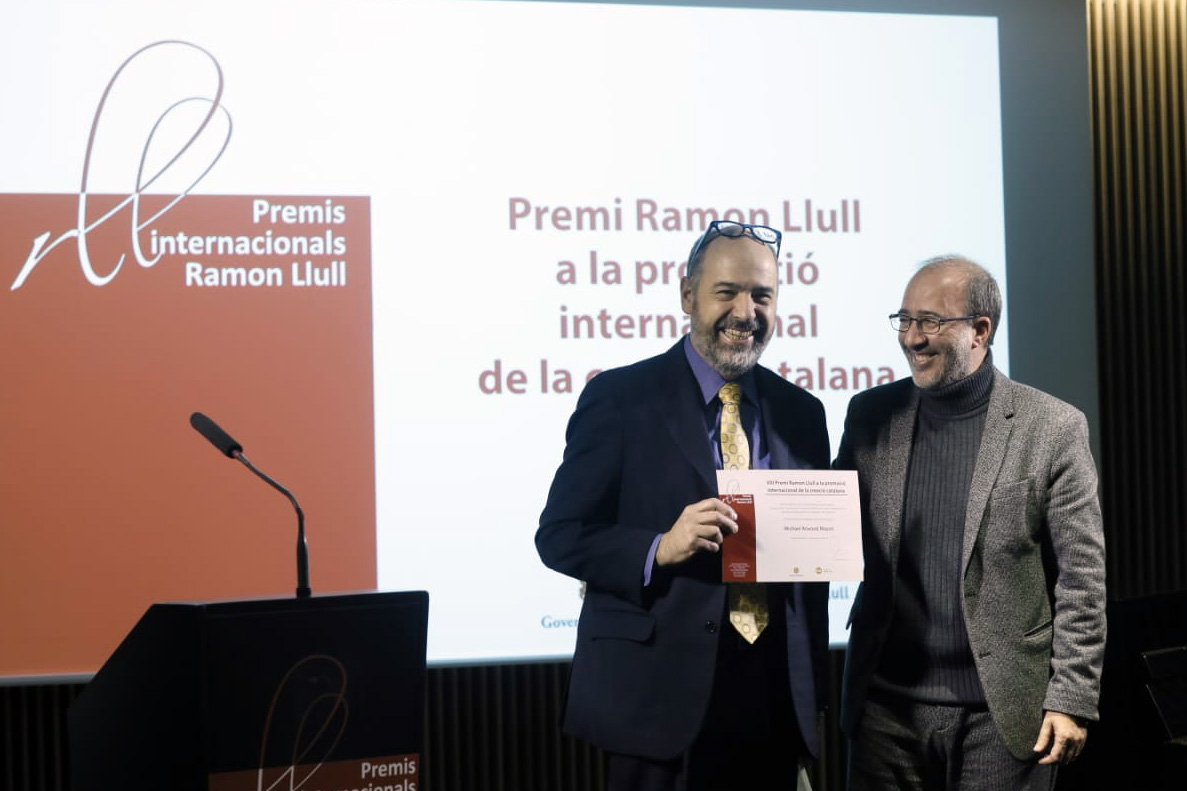On December 13, Michael Atwood Mason, director of the Smithsonian Center for Folklife and Cultural Heritage, received a prize for the international promotion of Catalan cultural production from the Ramon Llull Foundation. This award recognizes people or institutions beyond the Catalan-speaking world who have worked to promote Catalan language and culture.
The award ceremony was held at the National Auditorium of Andorra, in Ordino, in a ceremony that included the director of the Ramon Llull Foundation, Vicenç Villatoro; the director of the Ramon Llull Institute, Iolanda Batallé; the President of the Congress for Catalan Culture Foundation, Agustí Alcoberro; and the head of government of Andorra, Xavier Espot.
Villatoro explained, “The Ramon Llull Foundation is a unique organization that unites public institutions from all the Catalan-speaking territories who want to be together because they feel committed to one goal: the preservation of Catalan language and culture.”
The prize reflects Mason’s years of engagement with Catalan culture, including the Catalonia: Tradition and Creativity from the Mediterranean program at the 2018 Smithsonian Folklife Festival.
“I admire the fact that hundreds of thousands of Catalans actively collaborate to keep their popular culture alive,” Mason said. “Receiving this recognition is truly a great honor, and I dedicate this prize to all the Catalans who work every day to sustain their language and culture.”
Read Mason’s complete acceptance speech in English and Catalan.
This year’s prize winners also included the Moroccan translator Annie Bats (Prize for Literary Translation), recognized for the French adaptation of Ogre de toi (Llefre de tu), by the Mallorcan writer Biel Mesquida; and Japanese professor Ko Tazawa (Prize for Catalanistics and Linguistic Diversity), recognized for his work as a translator, writer, and educator in Japan.
The mission of the Ramon Llull Foundation is to intensify the study, promotion, and defense of the Catalan language and to foster the external projection of the language and the different cultural spheres expressed in it. It also ensures compliance with official language policies in collaboration with other public and private organizations. The board includes representatives from all Catalan-speaking regions.


